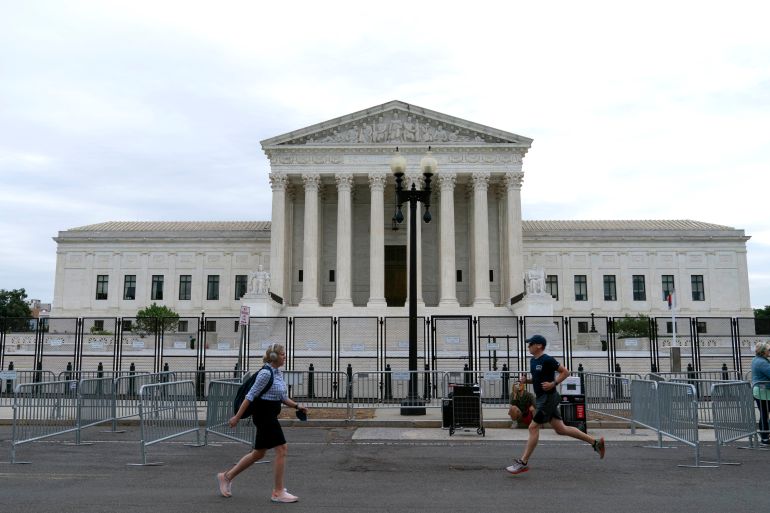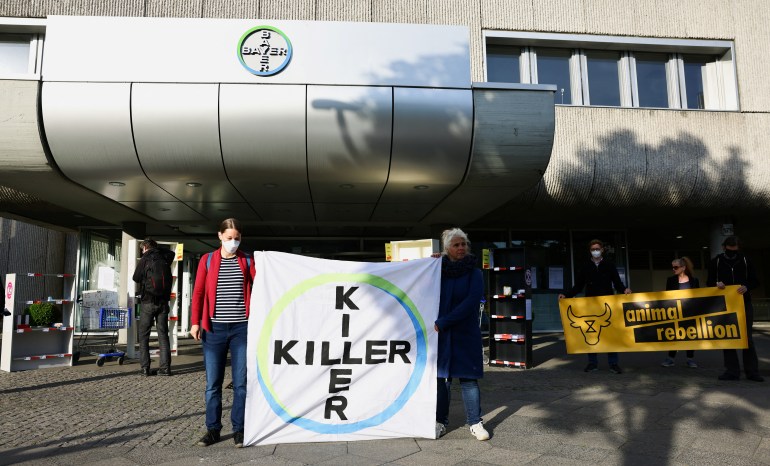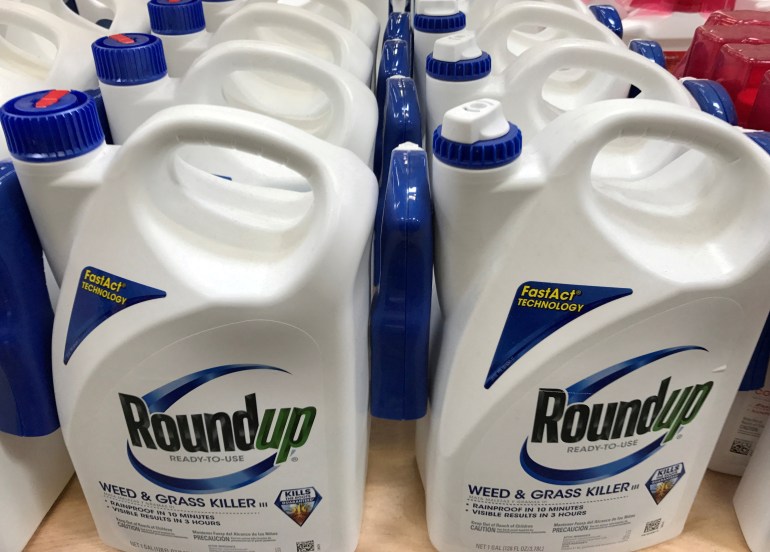US Supreme Court rejects Bayer’s bid to end Roundup lawsuits
The justices left in place a $25m judgement in favour of a man who says he developed cancer from using Roundup.

The US Supreme Court has rejected Bayer’s bid to dismiss legal claims by customers who say its weedkiller causes cancer, as the German company seeks to avoid potentially billions of dollars in damages.
The justices turned away a Bayer appeal’s on Tuesday and left in place a lower court decision that upheld $25m in damages awarded to California resident Edwin Hardeman, a user of its product Roundup, who blamed his cancer on the pharmaceutical and chemical giant’s glyphosate-based weedkillers.
Keep reading
list of 3 itemsBayer loses appeal of ruling that its weed killer causes cancer
Bayer faces German class action suit over Monsanto deal
The Supreme Court’s ruling dealt a blow to Bayer as the company manoeuvres to limit its legal liability in thousands of cases. The justices have a second Bayer petition pending on a related issue that they could act upon in the coming weeks.

The decision comes after US President Joe Biden’s administration in May urged the court not to hear the Bayer appeal, reversing the government’s position previously taken under former President Donald Trump.
Roundup-related lawsuits have dogged Bayer since it acquired the brand as part of its $63bn purchase of agricultural seeds and pesticides maker Monsanto in 2018.
The lawsuits against Bayer have said the company should have warned customers of the alleged cancer risk.
Bayer has lost three trials in which Roundup users have been awarded tens of millions of dollars in each, while also winning four trials. Bayer had pinned hopes for relief on the conservative-majority Supreme Court, which has a reputation for being pro-business.
Bayer said it “respectfully disagrees” with the court’s decision and that the company is “fully prepared to manage the litigation risk associated with potential future claims in the US”
Bayer also had warned that allowing these sorts of claims will damage innovation in agriculture, health and other industries.

On Friday, a panel of the 9th US Circuit Court of Appeals rejected an Environmental Protection Agency finding from 2020 that glyphosate does not pose a serious health risk and is “not likely” to cause cancer in humans. The appellate court ordered the EPA to reexamine its finding.
Bayer has asked the Supreme Court to review the verdict in Hardeman’s case, which was upheld by the 9th Circuit in May 2021. Hardeman had regularly used Roundup for 26 years at his home in northern California before being diagnosed with a form of non-Hodgkin’s lymphoma.
Bayer said in its March annual report that it had resolved about 107,000 cases out of about 138,000 cases overall.
Last year, Bayer set aside $4.5bn to deal with the claims that glyphosate, the weed-killing ingredient in Roundup, causes non-Hodgins lymphoma, a type of cancer. The company had previously taken a charge of nearly $10bn for earlier rounds of litigation.
Bayer plans to replace glyphosate in weedkillers for the US residential market of non-professional gardeners with other active ingredients.